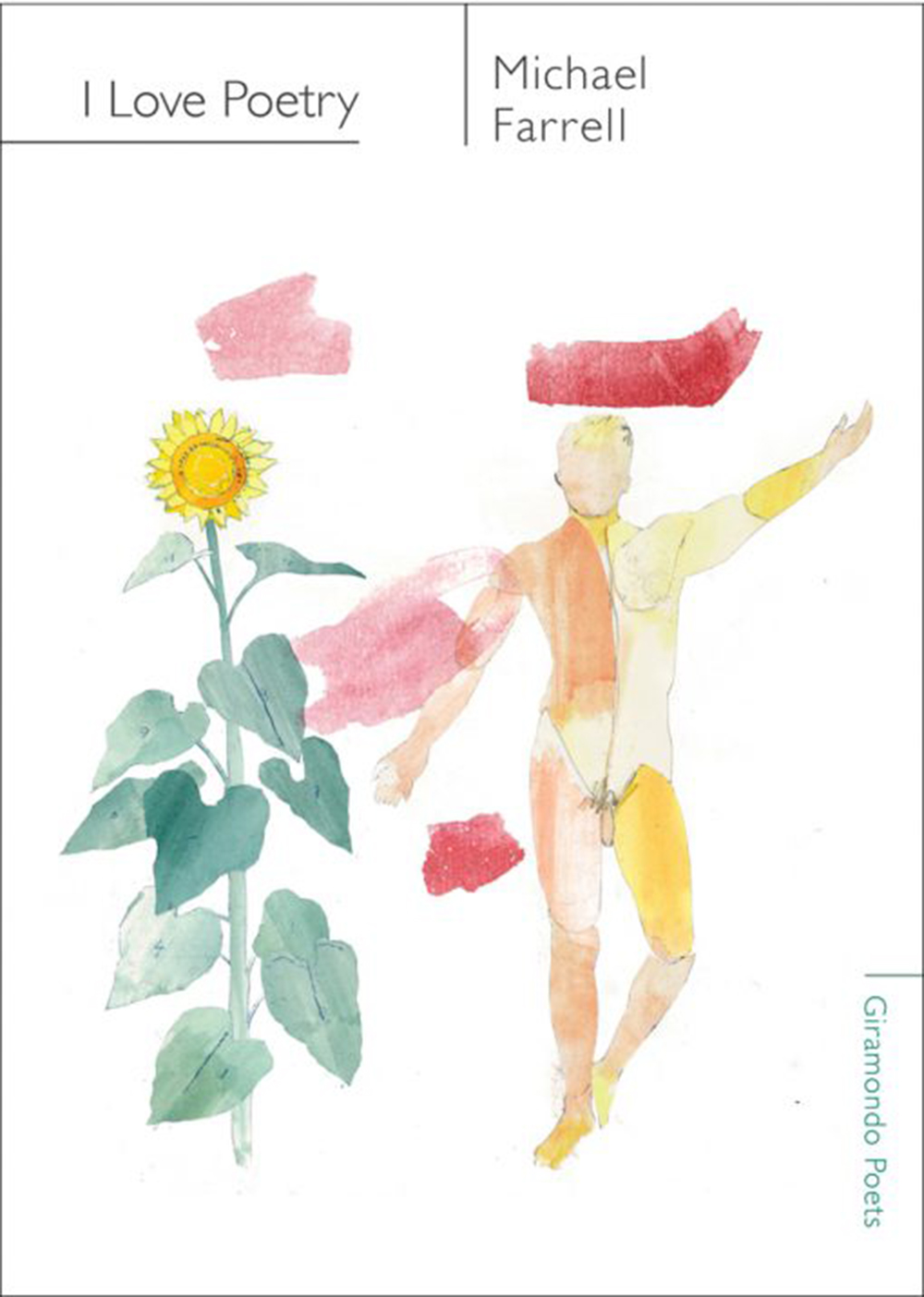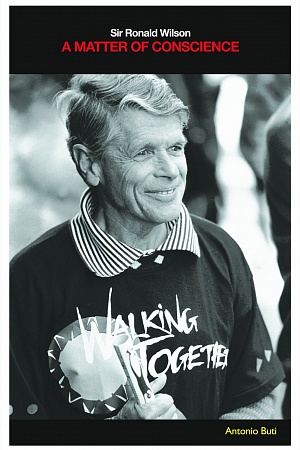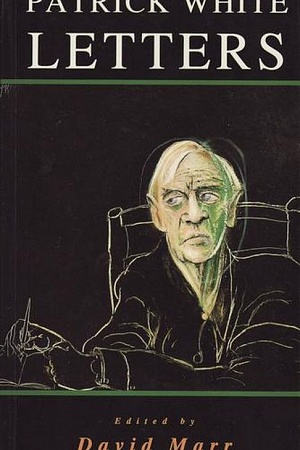2018 Publisher Picks
To complement our ‘Books of the Year’ feature, which appeared in the December 2018 issue, we invited some senior publishers to nominate their favourite books of 2018 – all published by other companies.
Nathan Hollier
 Deep Time Dreaming by Billy Griffiths (Black Inc.)Deep Time Dreaming: Uncovering Ancient Australia (Black Inc., reviewed in ABR, 4/18) relates the physical and intellectual challenges, adventures, innovations, and discoveries of modern Australian archaeology. In telling this story, commencing in the late 1950s, Billy Griffiths also discusses the social, political, and philosophical changes and issues that this archaeological activity has subsequently contributed to, or been affected by. Great knowledge, clear thinking, careful evaluation, and stylish exposition bring to light questions of existential significance: ‘To dream of deep time … propels us into a global perspective and allows us to see ourselves as a species. It also asks us to respect the deep past as a living heritage.’
Deep Time Dreaming by Billy Griffiths (Black Inc.)Deep Time Dreaming: Uncovering Ancient Australia (Black Inc., reviewed in ABR, 4/18) relates the physical and intellectual challenges, adventures, innovations, and discoveries of modern Australian archaeology. In telling this story, commencing in the late 1950s, Billy Griffiths also discusses the social, political, and philosophical changes and issues that this archaeological activity has subsequently contributed to, or been affected by. Great knowledge, clear thinking, careful evaluation, and stylish exposition bring to light questions of existential significance: ‘To dream of deep time … propels us into a global perspective and allows us to see ourselves as a species. It also asks us to respect the deep past as a living heritage.’
Nathan Hollier is Director of Monash University Publishing.
Michael Heyward
‘The past is never dead. It’s not even past,’ said William Faulkner. He might have been speaking of Billy Griffiths’s Deep Time Dreaming, an utterly compelling mixture of memoir, biography, history, and science. Griffiths tells the tale of how, thanks to the work of some brilliant archaeologists and their guides and collaborators, we have been able to glimpse not just the ancient human history of this continent, but its living signature, too. Each time Griffiths’s story got older, it found new ways to begin.
Michael Heyward is Publisher at Text Publishing.
Nikki Christer
 The Trauma Cleaner by Sarah Krasnostein (Text Publishing)The first thing to say about Sarah Krasnostein’s The Trauma Cleaner (Text Publishing) – an unforgettable book – is how striking it is. It has the sort of cover that spawns a zillion copies with its powerful simplicity. Hats off to the publishers for that. The second thing to say about this book is that it’s absolutely brilliant. The writing is clear-eyed, filled with humanity, subtlety, and grace. Krasnostein loves her subject and this shines through on every page. I would have loved to have published it; we were one of the bidders but lost out to Text, which published it impeccably. I was cheering from the sidelines to see Sarah pick up a swag of awards.
The Trauma Cleaner by Sarah Krasnostein (Text Publishing)The first thing to say about Sarah Krasnostein’s The Trauma Cleaner (Text Publishing) – an unforgettable book – is how striking it is. It has the sort of cover that spawns a zillion copies with its powerful simplicity. Hats off to the publishers for that. The second thing to say about this book is that it’s absolutely brilliant. The writing is clear-eyed, filled with humanity, subtlety, and grace. Krasnostein loves her subject and this shines through on every page. I would have loved to have published it; we were one of the bidders but lost out to Text, which published it impeccably. I was cheering from the sidelines to see Sarah pick up a swag of awards.
Nikki Christer is Group Publishing Director at Penguin Random House.
Terri-ann White
 Blakwork by Alison Whittaker (Magabala Books)Alison Whittaker’s Blakwork (Magabala Books), even in its more benign moments, is an intense thump to the body. This is because, through poetry and observation, Whittaker unmakes and remakes so much in her narratives by working the language hard. The interposing within a framework of ‘work’ categories yields erudition, worn lightly, alongside experimentation and irony and tenderness. I had to read slowly, so richly dense was it with history and family and people’s lives; encompassing how language assists in oppressing people and how it can also recover worlds of hope and self-determination. A delight, by a young writer of distinction.
Blakwork by Alison Whittaker (Magabala Books)Alison Whittaker’s Blakwork (Magabala Books), even in its more benign moments, is an intense thump to the body. This is because, through poetry and observation, Whittaker unmakes and remakes so much in her narratives by working the language hard. The interposing within a framework of ‘work’ categories yields erudition, worn lightly, alongside experimentation and irony and tenderness. I had to read slowly, so richly dense was it with history and family and people’s lives; encompassing how language assists in oppressing people and how it can also recover worlds of hope and self-determination. A delight, by a young writer of distinction.
Terri-ann White is Director of UWA Publishing.
Alice Grundy
 Beautiful Revolutionary by Laura Elizabeth Woollett (Scribe)In Beautiful Revolutionary (Scribe, 10/18), Laura Elizabeth Woollett creates unforgettable characters. Months later, I can still see and hear them vividly. Beautiful Revolutionary is the story of the cult that lead to the Jonestown Massacre, the largest intentional loss of American life in one event until 9/11. The research and writing are impeccable, yet still warm and immediate, especially her depiction of Evelyn, a young woman drawn into the inner circle of the People’s Temple.
Beautiful Revolutionary by Laura Elizabeth Woollett (Scribe)In Beautiful Revolutionary (Scribe, 10/18), Laura Elizabeth Woollett creates unforgettable characters. Months later, I can still see and hear them vividly. Beautiful Revolutionary is the story of the cult that lead to the Jonestown Massacre, the largest intentional loss of American life in one event until 9/11. The research and writing are impeccable, yet still warm and immediate, especially her depiction of Evelyn, a young woman drawn into the inner circle of the People’s Temple.
Alice Grundy is an associate publisher at Brio Books.
Phillipa McGuinness
 On Disruption by Katharine Murphy (Melbourne University Publishing)One tiny book, a long essay really, punched above its weight and has not left me since I read it. ‘Timely’ is a standby word for blurb writers, but Katharine Murphy’s On Disruption (Melbourne University Press) really is just that, an intervention for our ‘post-truth age’. Not all journalists are great writers, but Murphy is, and she’s not afraid to turn the searchlight on herself and her profession. Pressure from without is also pressure from within, and this book shows how high the stakes are. That she is able to serve as ‘a river guide in white water’ is to all our benefits.
On Disruption by Katharine Murphy (Melbourne University Publishing)One tiny book, a long essay really, punched above its weight and has not left me since I read it. ‘Timely’ is a standby word for blurb writers, but Katharine Murphy’s On Disruption (Melbourne University Press) really is just that, an intervention for our ‘post-truth age’. Not all journalists are great writers, but Murphy is, and she’s not afraid to turn the searchlight on herself and her profession. Pressure from without is also pressure from within, and this book shows how high the stakes are. That she is able to serve as ‘a river guide in white water’ is to all our benefits.
Phillipa McGuinness is Publisher at NewSouth Publishing/UNSW Press.
Catherine Milne
 The Bookshop of the Broken Hearted by Robert Hillman (Text Publishing)The Bookshop of the Broken Hearted (Text Publishing), by Robert Hillman, is an Australian gem: wise, tender, melancholy, gentle – simple yet undeniably powerful. The story of decent Tom Hope and haunted Hannah Babel rang as pure and true as a bell. While the novel doesn’t shy away from showing the darkness of history and the inexplicable cruelty of people, it also shows us that love can help us through – love and books. Ceridwen Dovey’s In the Garden of the Fugitives (Hamish Hamilton, 3/18) is, in a way, its polar opposite: a bravura achievement, dazzling, complex, layered, thought-provoking and mind-stretchingly clever – but equally compelling.
The Bookshop of the Broken Hearted by Robert Hillman (Text Publishing)The Bookshop of the Broken Hearted (Text Publishing), by Robert Hillman, is an Australian gem: wise, tender, melancholy, gentle – simple yet undeniably powerful. The story of decent Tom Hope and haunted Hannah Babel rang as pure and true as a bell. While the novel doesn’t shy away from showing the darkness of history and the inexplicable cruelty of people, it also shows us that love can help us through – love and books. Ceridwen Dovey’s In the Garden of the Fugitives (Hamish Hamilton, 3/18) is, in a way, its polar opposite: a bravura achievement, dazzling, complex, layered, thought-provoking and mind-stretchingly clever – but equally compelling.
Catherine Milne is Publisher and Head of Fiction at HarperCollins Publishers Australia.
Aviva Tuffield
 Any Ordinary Day by Leigh Sales (Hamish Hamilton)I’m choosing two books that affected me deeply – divergent in style and approach, but both challenging us to imaginatively consider the lives of others. Alison Whittaker’s Blakwork proves, yet again, that she is one of the sharpest minds around. This coruscating collection plays with form and style, throughout centring Indigenous voices and experiences, and decolonising language. It’s bold and unapologetic, slicing through the hypocrisies of settler colonialism. Leigh Sales’s Any Ordinary Day (Hamish Hamilton, 10/18) undid me repeatedly with its empathetic stories of how people cope when ‘the worst thing happens’. Sales turns the spotlight on her own personal life as well as her professional one, interrogating the role of journalists in reporting tragedy and trauma.
Any Ordinary Day by Leigh Sales (Hamish Hamilton)I’m choosing two books that affected me deeply – divergent in style and approach, but both challenging us to imaginatively consider the lives of others. Alison Whittaker’s Blakwork proves, yet again, that she is one of the sharpest minds around. This coruscating collection plays with form and style, throughout centring Indigenous voices and experiences, and decolonising language. It’s bold and unapologetic, slicing through the hypocrisies of settler colonialism. Leigh Sales’s Any Ordinary Day (Hamish Hamilton, 10/18) undid me repeatedly with its empathetic stories of how people cope when ‘the worst thing happens’. Sales turns the spotlight on her own personal life as well as her professional one, interrogating the role of journalists in reporting tragedy and trauma.
Aviva Tuffield is a publisher at the University of Queensland Press.
Meredith Curnow
 Growing Up Aboriginal in Australia, edited by Anita Heiss (Black Inc.)Growing Up Aboriginal in Australia (Black Inc.), edited by Anita Heiss, is a revelation, and it shouldn’t be. Bringing together experiences from voices new and old, young and mature, this is a collection to return to, not only because we cannot change what we ignore, but also for inspiration. We See the Stars (Allen & Unwin), a début from Kate van Hooft, deftly explores my favourite trait, kindness, as a young boy attempts to broaden his engagement with the small, disturbing, and noisy world in which he lives. Tension builds and the reader is lead to an open ending, or is it?
Growing Up Aboriginal in Australia, edited by Anita Heiss (Black Inc.)Growing Up Aboriginal in Australia (Black Inc.), edited by Anita Heiss, is a revelation, and it shouldn’t be. Bringing together experiences from voices new and old, young and mature, this is a collection to return to, not only because we cannot change what we ignore, but also for inspiration. We See the Stars (Allen & Unwin), a début from Kate van Hooft, deftly explores my favourite trait, kindness, as a young boy attempts to broaden his engagement with the small, disturbing, and noisy world in which he lives. Tension builds and the reader is lead to an open ending, or is it?
Meredith Curnow is a publisher at Penguin Random House Australia.
Barry Scott
 Blue Lake by David Sornig (Scribe)David Sornig’s Blue Lake: Finding Dudley Flats and the West Melbourne Swamp (Scribe), absorbed me on so many levels. Sornig brings a novelist’s eye to his acute portrait of Elsie and the other fringe dwellers living on the edge of Melbourne. During the Great Depression, such outcasts built humpies and scavenged from rubbish tips. Like Janet Frame in Owls Do Cry (1961), Sornig understands the treasures of the spirit to be found in the compromised wastelands of our cities. In fiction, Angela Meyer’s A Superior Spectre (Ventura) grappled beautifully with the dilemma of longevity versus soul.
Blue Lake by David Sornig (Scribe)David Sornig’s Blue Lake: Finding Dudley Flats and the West Melbourne Swamp (Scribe), absorbed me on so many levels. Sornig brings a novelist’s eye to his acute portrait of Elsie and the other fringe dwellers living on the edge of Melbourne. During the Great Depression, such outcasts built humpies and scavenged from rubbish tips. Like Janet Frame in Owls Do Cry (1961), Sornig understands the treasures of the spirit to be found in the compromised wastelands of our cities. In fiction, Angela Meyer’s A Superior Spectre (Ventura) grappled beautifully with the dilemma of longevity versus soul.
Barry Scott is Publisher at Transit Lounge.
David Musgrave
 I Love Poetry by Michael Farrell (Giramondo)As a publisher, teacher, and writer, I have little time to read for pleasure, so I’m fairly choosy about what I read. Michael Farrell’s I Love Poetry (Giramondo) is one of the stronger books to have come out recently. Farrell’s last few books have shown a real maturation in his voice. Paradoxically enough, it is his more personal and less characteristically playful poems that mark this development in his work. I also enjoyed Maria Tumarkin’s collection of essays Axiomatic (Brow Books, 9/18) for their intensity, honesty, and the Eastern European sensibility from which they derive.
I Love Poetry by Michael Farrell (Giramondo)As a publisher, teacher, and writer, I have little time to read for pleasure, so I’m fairly choosy about what I read. Michael Farrell’s I Love Poetry (Giramondo) is one of the stronger books to have come out recently. Farrell’s last few books have shown a real maturation in his voice. Paradoxically enough, it is his more personal and less characteristically playful poems that mark this development in his work. I also enjoyed Maria Tumarkin’s collection of essays Axiomatic (Brow Books, 9/18) for their intensity, honesty, and the Eastern European sensibility from which they derive.
David Musgrave is Publisher at Puncher & Wattmann.
Mathilda Imlah
 In the Garden of the Fugitives by Ceridwen Dovey (Hamish Hamilton)I seem to be taken with all things igneous this year. I devoured Ceridwen Dovey’s In the Garden of the Fugitives: rich, strange, mesmerising. Startling, in fact, as Dovey always seems to be. I note now that it’s sitting on my shelf beside Anna Burns’s Milkman, Sally Rooney’s Normal People, and Lisa Halliday’s Asymmetry, all having a gentle conversation in the way they do. I also read Chloe Hooper’s The Arsonist: A mind on fire (Hamish Hamilton, 10/18) in a single sitting and at arm’s length. The ability to bear such forensic witness must exert a terrific toll: it is a harrowing read and utterly riveting.
In the Garden of the Fugitives by Ceridwen Dovey (Hamish Hamilton)I seem to be taken with all things igneous this year. I devoured Ceridwen Dovey’s In the Garden of the Fugitives: rich, strange, mesmerising. Startling, in fact, as Dovey always seems to be. I note now that it’s sitting on my shelf beside Anna Burns’s Milkman, Sally Rooney’s Normal People, and Lisa Halliday’s Asymmetry, all having a gentle conversation in the way they do. I also read Chloe Hooper’s The Arsonist: A mind on fire (Hamish Hamilton, 10/18) in a single sitting and at arm’s length. The ability to bear such forensic witness must exert a terrific toll: it is a harrowing read and utterly riveting.
On a personal note, I think we all suffered a great loss in the poet and activist Candy Royalle, who died suddenly, and far, far too soon, in June 2018. Her first muscular and uncompromising collection, A trillion tiny awakenings, towards which she had been working for many years, was published posthumously by UWAP. Vale, Candy.
Mathilda Imlah is the Picador Publisher.
Sam Cooney
 The Lebs by Michael Mohammed Ahmad (Hachette)The locally published book that most knocked me sideways this year was Michael Mohammed Ahmad’s The Lebs (Hachette, 3/18). We recognise the characters of this book – these Western Sydney boys and girls and men and women, these ‘lebs’ and ‘fobs’ – and feel as though we know them. Yet most of us don’t know them or their stories. Michael Mohammed Ahmad drags us inside the worlds of these characters. I just wish all realist fiction were as unapologetic in its approach.
The Lebs by Michael Mohammed Ahmad (Hachette)The locally published book that most knocked me sideways this year was Michael Mohammed Ahmad’s The Lebs (Hachette, 3/18). We recognise the characters of this book – these Western Sydney boys and girls and men and women, these ‘lebs’ and ‘fobs’ – and feel as though we know them. Yet most of us don’t know them or their stories. Michael Mohammed Ahmad drags us inside the worlds of these characters. I just wish all realist fiction were as unapologetic in its approach.
Sam Cooney is Publisher at Brow Books.










Leave a comment
If you are an ABR subscriber, you will need to sign in to post a comment.
If you have forgotten your sign in details, or if you receive an error message when trying to submit your comment, please email your comment (and the name of the article to which it relates) to ABR Comments. We will review your comment and, subject to approval, we will post it under your name.
Please note that all comments must be approved by ABR and comply with our Terms & Conditions.